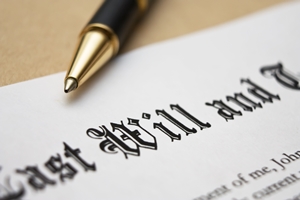 Some people may not have a will or may be reluctant to draft one because they assume that if they don’t, the state will take care of things.
Some people may not have a will or may be reluctant to draft one because they assume that if they don’t, the state will take care of things.
The state’s default inheritance scheme is known as intestate Minnesota probate law. While it’s true that your assets will be identified and distributed even if you lack a Minnesota will, there is no guarantee that the chosen plan is what you would have wanted. The rigidness of intestate succession and its lack of options is what prompts many people to draw up their own wills, allowing them to have control over how their worldly possessions are divided after death.
So how does intestate succession work and what should you expect if you don’t have a will? Keep reading to find out more.
Executor or Personal Representative in a Minnesota estate or probate
First things first, you need to understand who will be in charge of the division process. Without a will listing an executor in charge of managing the distribution of an estate, the Minnesota probate court in charge of handling the matter must identify someone to handle the process. The first option considered by most judges is the surviving spouse or partner. If there is no surviving spouse, adult children are usually considered next, followed by other close family members.
What isn’t included?
Though most people believe a will handles the distribution of all of a person’s assets, the reality is that some items are not passed by wills. Examples include life insurance payouts, bank accounts held jointly with the right of survivorship, items kept inside a living trust and money in various retirement accounts like IRAs and 401(k)s. These items pass on to others outside of the probate process and are thus handled separately from other property.
Who inherits under a Minnesota Will or Intestate Succession?
In Minnesota, if you are married and you die without a will your spouse is the first person hat stands to inherit. How much your spouse ultimately receives depends on other factors, including whether you have other surviving descendants. If no descendants, your spouse inherits all of your intestate property. Your spouse will also inherit the entire estate if all of your descendants are the product of you and your spouse.
However, if you have children from another relationship or you and your spouse have children plus your spouse has children of his or her own, then the law says that your spouse will inherit the first $150,000 of your estate as well as half of the remaining balance. The other half will go to your children.
If there is no surviving spouse or children, state law next looks to parents and siblings. Finally, distant relatives like grandparents, aunts, uncles and cousins are considered when no other options exist.
Will the state of Minnesota take the money if I die without a Will?
One common worry among those in Minnesota without a will is the possibility that their property could end up going to the state after their death. While this is technically possible, the likelihood that your assets would “escheat” to the state is low. That’s because lawmakers devised a fairly comprehensive intestate succession plan that is designed to ensure your property is given to someone, even distant relatives. The state would exhaust all possibilities including spouses, children, brothers, sisters, parents, grandparents, aunts, uncles, great aunts, great uncles, nieces, nephews, cousins and others before finally taking the money for itself.
Though it may be confusing, creating an effective estate plan does not have to be an overly complicated process. An experienced Minnesota probate lawyer can help walk you through the process of establishing or updating a will or trust. For more information on estate planning in Minnesota, along with a variety of other topics, contact Joseph M. Flanders of Flanders Law Firm at (612) 424-0398.




When I was a child, I had the impression that leaving a will is just suited for people who are well-off or those who are too wealthy that they will have a hard time distributing their wealth. From the information you shared, it is now clearer that it is better to leave a will no matter how much money you have in your account. I certainly want to make sure that the fruits of my hard work will be enjoyed by my chosen beneficiaries.